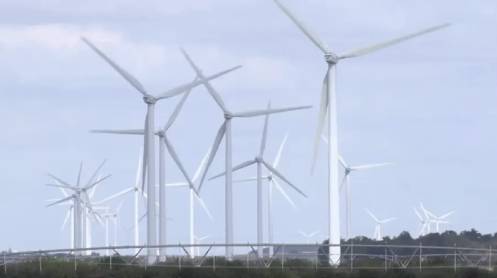Electricity prices in Europe fell into negative territory over the weekend as the region’s green-energy push resulted in an abundance of supply.
On Saturday, prices for the following day dipped below zero in about a dozen countries, including Germany, France, the United Kingdom and the Netherlands, according to Epex Spot SE data cited by Bloomberg.
In the Netherlands, prices for Sunday afternoon were as low as minus 73.76 euros per megawatt hour, or about minus $82.83.
The glut of energy is thanks to investments in green infrastructure, such as solar panels and wind turbines. Europe installed a record number of new solar panels last year to reduce its reliance on natural gas, which saw prices spike a year ago after Russia cut off supplies.
Earlier this year, the European Union saw monthly solar power generation exceed electricity from coal for the first time. Consumers have also reduced power demand after Moscow sparked the energy crisis last year.
This isn’t the first time Europe’s energy prices turned negative, and the occurrences have become more frequent.
Other examples include Finland, which saw its energy prices fall below zero after its newest nuclear reactor went online in April and unexpected floods produced a spike in hydroelectric power.
On May 24, the average energy price for the day was “slightly” negative, the CEO of Finland’s grid operator told the Finnish public broadcaster Yle.
In practice, however, it didn’t mean consumers were paid to consume electricity. People pay a markup on the electricity, and often pay agreed rates for power instead of the raw market price.
But the negative prices signal an imbalance in the market and could discourage future investment in more energy infrastructure. Adjusting consumption patterns, such as when EV drivers charge their cars, could help smooth out prices.
Meanwhile, Europe could face more volatility in energy markets if Russia further cuts off natural gas supplies and the region get hit with harsh weather in the winter, the International Energy Agency warned.







